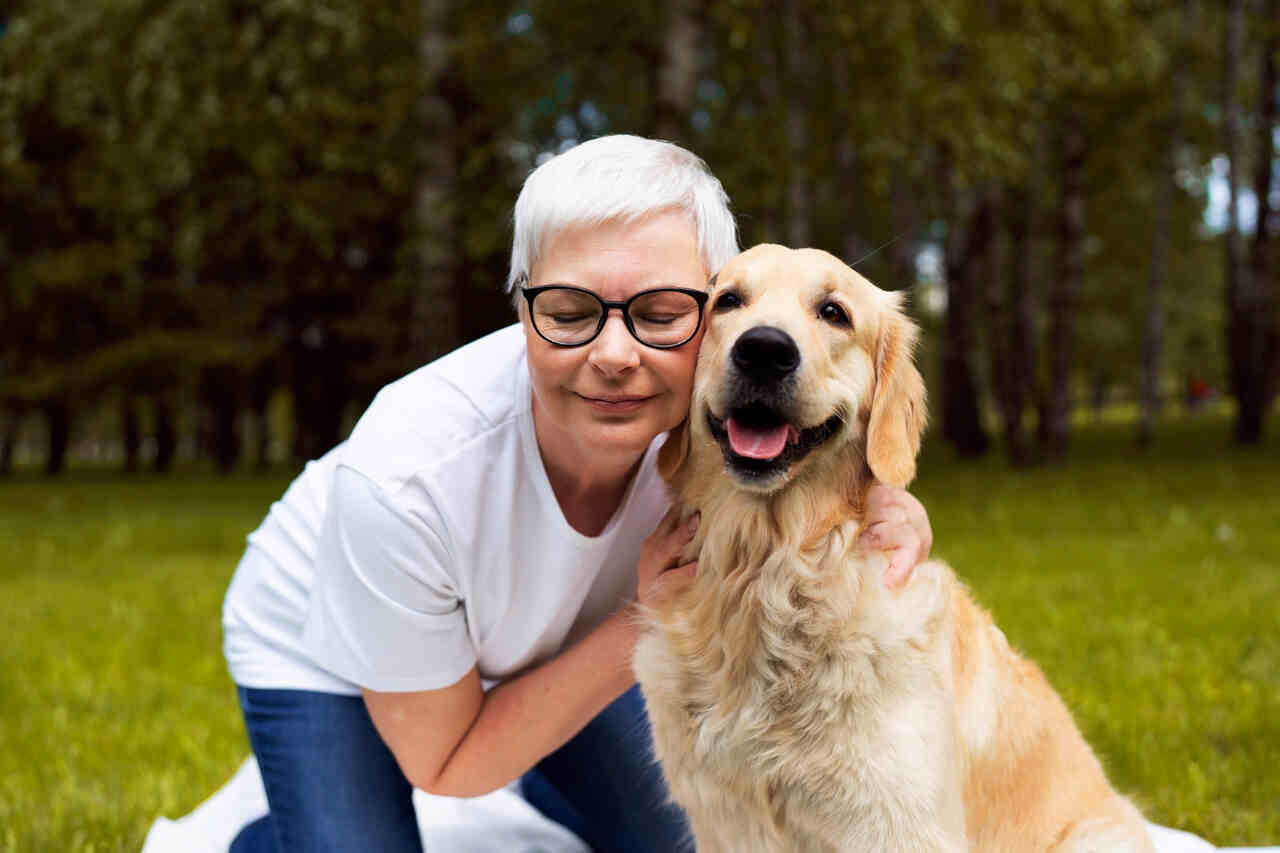
Are you thinking about giving a pet to an elderly person? Having the company of a pet brings many benefits to seniors, but it’s important to consider the elderly person’s lifestyle before making this decision.
+ Video: Dog confronts mountain lion and survives to tell the tale
“The benefit of having a pet is really the benefit of life,” explained Dr. April Kelly, a licensed veterinarian in several states in the United States, in a conversation with the website care.com.
“Just having an animal at home promotes a lot of positivity for seniors because it gives them a job, gives them a task, gives them something to wake up and do. It makes them move. They are more likely to go out and walk, or they are more likely to go out and socialize.”
However, not every pet is suitable for every senior. It’s important to remember that pets require a lot of work, so caregivers will want to take into account the cognitive and physical abilities of a senior when choosing a furry companion, according to Dr. Brooke Mobley, a geriatrician from Florida.
Check out below the best pets for each type of senior, depending on their lifestyle:
Best Pets for Healthy and Active Seniors
For seniors with an active lifestyle, small dogs are the best choice. “In general, a smaller pet is always better than a larger dog for seniors,” said Kelly, adding that there is something special and comforting about a small animal that can sleep in your lap.
Additionally, she mentioned that she has seen larger dogs causing injuries to their owners during walks, so Kelly often encourages seniors and their caregivers to consider the risks that larger breeds may pose.
Mobley also prefers small dogs for seniors for similar reasons, highlighting the additional health benefits they can provide to older adults.
“This physical activity of walking the dog two to three times a day definitely gets you those 20 minutes of cardiovascular exercise that the American Heart Association strongly recommends,” she stated.
Best Pets for Seniors with Limited Mobility
Seniors with limited mobility may put themselves at risk for injury with pets that require the level of attention that dogs need, so a great option for seniors with this physical capacity is cats and caged animals, such as birds or rodents.
“Cats seem to be a bit more self-sufficient and require less help from outside people if you can’t be home to take care of the cat,” said Mobley, adding that this senior could get an automatic litter box or a type of litter that doesn’t need to be cleaned as often, which can be a good advantage considering limited mobility.
“This gives you some space for emergencies, in case there is no one to help or to take care of your pet if you have to go to the hospital or a qualified rehabilitation facility,” she explained.
Kelly discouraged seniors from having outdoor cats due to the increased risk of fleas and infections that can also affect the owner. However, an indoor cat would be “absolutely perfect,” according to her.
Kelly also recommended animals that live in terrariums or cages. “People don’t think of it this way, but iguanas have personality. They have very easy care schedules for the most part. You just have to make sure to keep their habitat in order.”
She also likes birds for seniors with mobility issues. “A parrot [can learn] tricks – you can teach them to talk and fly to you. Seniors who spend a lot of time at home have more time to spend with these animals and can communicate better with them,” she analyzed.
With this in mind, Mobley took the opportunity to warn that support is needed to ensure that cages are carefully maintained to ensure the health and well-being of both the animal and the senior.
Best Pets for Seniors with Cognitive Challenges
Common symptoms of cognitive decline include memory loss, lack of interest, difficulty keeping up, and mood problems, among other symptoms. Seniors dealing with these challenges should consider a stuffed animal instead of a living pet, which can provide similar companionship, according to Mobley.
She treats geriatric patients living in nursing homes who want affection and something to hug. “Stuffed animals, baby dolls, things like that tend to give them the feeling of caring for something without the risk of putting a living being in danger,” she said.
Mobley also warned that most assisted living facilities do not allow pets, and separating from a pet when experiencing cognitive decline can be traumatic for a senior.
Additionally, sometimes the decline is so pronounced that some seniors believe that stuffed animals are living pets. “A stuffed animal is a way to have something that is yours,” she emphasized, adding that it also meets a connection craving that seniors with cognitive decline may have, especially when they are isolated from their families.
This content was created with the help of AI and reviewed by the editorial team.

